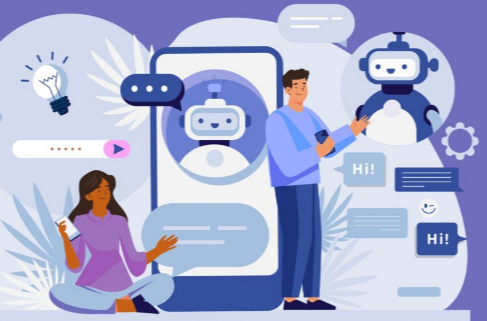Benefits of Deploying AI Agents in Multi-Channel Support

Customers now expect seamless service across phone calls, live chat, social media, email, and more. Traditional support teams often struggle to keep pace with these expectations without sacrificing response quality or speed. This is why more businesses are turning to the customer support AI agent, a technology designed to deliver intelligent, consistent assistance across all communication channels.
The market growth reflects this demand. According to Precedence Research, the global call center AI market was valued at USD 3.23 billion in 2024, is projected to reach USD 3.98 billion in 2025, and is expected to grow to USD 25.84 billion by 2034.
This explosive expansion underscores how AI agents are becoming a cornerstone of modern customer service strategies, helping organizations deliver faster, smarter, and more scalable support.
Why a Customer Support AI Agent Is Essential Now
The rapid changes in customer expectations, combined with economic and technological shifts, make the adoption of customer support AI agents more urgent than ever. Businesses that delay risk falling behind competitors who are already leveraging AI for faster, smarter, and more personalized service.
Key reasons it’s essential today include:
- Rising Customer Expectations: Customers demand instant responses, consistent experiences, and 24/7 availability that traditional call centers cannot provide alone.
- Explosive Market Growth: With the call center AI market projected to reach USD 25.84 billion by 2034 (Precedence Research), early adopters are better positioned to secure a competitive edge.
- Workforce Pressures: High turnover rates and training costs in call centers make AI a practical solution to reduce agent burnout and improve efficiency.
- Scalability Needs: Businesses must handle growing customer volumes across multiple channels without exponentially increasing costs.
- Integration with Generative AI: As Gartner predicts, by 2025, 80% of customer service organizations will use generative AI to enhance productivity and CX, making adoption a necessity rather than a choice.
In short, AI agents are no longer a futuristic idea; they are becoming the foundation of modern customer support.
Benefits of AI Agents in Multi-Channel Support
Deploying AI agents across multiple support channels allows businesses to meet growing customer expectations while keeping operations efficient and scalable. Here are the most important benefits:
- Consistent Customer Experience: AI ensures that responses are aligned with brand guidelines across phone, chat, email, and social platforms. This consistency reduces confusion and builds stronger trust with customers.
- Faster Response Times: By instantly handling FAQs and common issues, AI agents cut down wait times and improve first-contact resolution rates, two critical factors for customer satisfaction.
- 24/7 Availability: Customers no longer need to wait for office hours. AI-driven systems are available around the clock, providing global coverage without requiring additional staffing.
- Efficient Workload Distribution: AI agents handle routine, repetitive queries, freeing human agents to focus on complex issues that require empathy, critical thinking, or negotiation.
- Scalability Across Channels: Whether it’s 100 or 10,000 interactions, AI can manage the load simultaneously. This makes it easier for businesses to expand into new markets without proportionally increasing costs.
- Improved Data Insights: Every customer interaction processed by AI becomes a data point. These insights help businesses identify trends, anticipate customer needs, and improve products or services.
Key Metrics to Track Success
To truly measure the value of deploying a customer support AI agent, businesses need to track specific performance metrics. These KPIs help assess both customer satisfaction and operational efficiency.
- Customer Satisfaction Score (CSAT): Measures how happy customers are with their support experience. AI can improve CSAT by delivering faster, more accurate responses.
- First Contact Resolution (FCR): Tracks how often issues are resolved during the first interaction. AI boosts FCR by handling common queries instantly or routing complex cases to the right agent.
- Average Handle Time (AHT): Calculates the average time spent on each customer interaction. AI reduces AHT by automating routine tasks and assisting agents with faster information retrieval.
- Response Time: Evaluates how quickly customers receive initial assistance. With AI, response times shrink from minutes (or hours) to just seconds.
- Cost per Interaction: Measures the cost of handling each customer request. AI lowers this metric significantly by scaling support without requiring proportional increases in staff.
- Agent Productivity: Tracks how many cases a human agent can handle effectively. AI improves productivity by filtering out repetitive tasks and supporting agents with real-time data.
By monitoring these KPIs, businesses can ensure their AI deployment is not just a technology upgrade but a measurable driver of customer experience and cost efficiency.
Read Also: How Do You Optimize Your Blockchain App with Blockchain SEO?
Future Trends in Multi-Channel AI Support
The role of customer support AI agents is set to expand rapidly as technology advances. What’s now seen as a cost-saving tool will soon become a central driver of customer experience strategies.
Emerging trends to watch include:
- Generative AI Integration: AI agents will move beyond scripted responses to generate natural, context-aware conversations that feel more human.
- Hyper-Personalization: Using advanced analytics, AI will tailor support based on past interactions, purchase history, and even predicted needs.
- Voice AI and Conversational IVR: Smarter voice assistants will transform traditional call handling, offering faster, more intuitive phone support.
- Proactive Support Models: Instead of waiting for customers to reach out, AI agents will predict issues (like service outages or billing errors) and notify customers in advance.
- Omnichannel Synchronization: Conversations will flow seamlessly across platforms. For example, a customer starting a chat on a website can continue it later on WhatsApp without losing context.
These trends show that AI in customer support is not just about efficiency but about creating more human-like, proactive, and seamless experiences at scale.
Challenges and Considerations in Multi-Channel AI Deployment
While the benefits of customer support AI agents are significant, businesses should also prepare for challenges during implementation. Recognizing these early helps avoid costly mistakes and ensures smoother adoption.
Key considerations include:
- Integration with Legacy Systems: Many call centers still rely on outdated software that doesn’t easily connect with AI platforms. Careful planning is required for seamless integration.
- Data Privacy and Compliance: Handling sensitive customer information requires strict compliance with data protection regulations like GDPR or HIPAA.
- Maintaining the Human Touch: Over-automation can frustrate customers who want empathy or nuanced support. A hybrid model (AI + human agents) works best.
- Training and Continuous Improvement: AI agents are only as good as the data they’re trained on. Poor or outdated data can lead to inaccurate responses.
- Upfront Investment: While long-term ROI is high, initial costs for setup, training, and integration can be significant for some organizations.
By addressing these challenges proactively, businesses can ensure their AI deployments deliver sustainable value without compromising customer trust.
Final Thoughts
The adoption of customer support AI agents in multi-channel environments is reshaping how businesses connect with their customers. By streamlining response times, ensuring consistency, and enabling 24/7 availability, AI has moved from being a support tool to becoming a cornerstone of customer experience strategies.
The organizations that succeed will be those that balance automation with human empathy, creating a hybrid model that not only boosts efficiency but also strengthens trust and loyalty.
AI agents are not just about solving today’s challenges, they are about preparing businesses for the evolving expectations of tomorrow’s customers.







